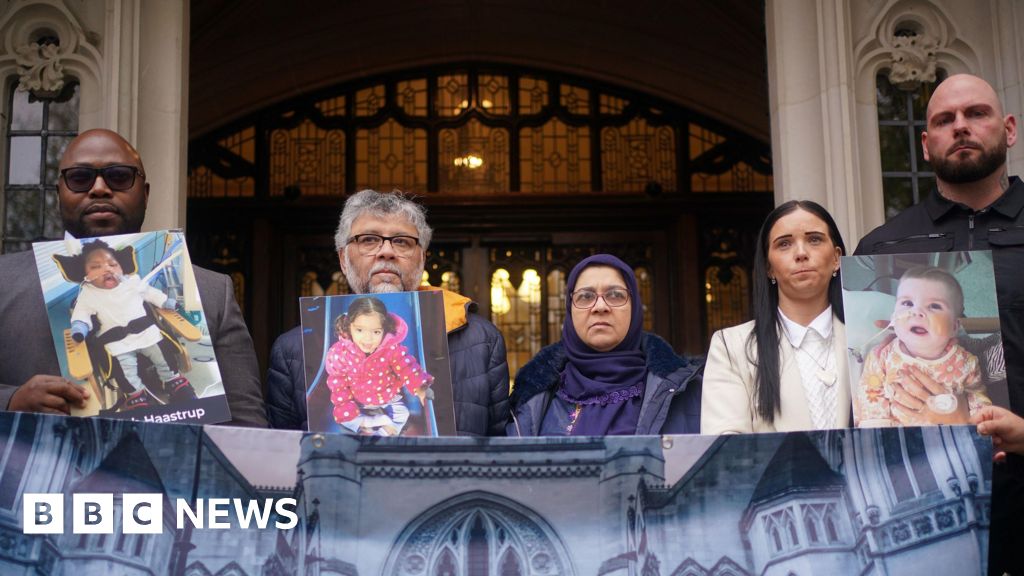Parents involved in legal battles about their dying children are to find out whether the Supreme Court will allow doctors in two end-of-life cases to be named.
Isaiah Haastrup, aged 12 months, and six-year-old Zainab Abbasi were at the centre of life support treatment disputes at the High Court in London before their deaths in 2018 and 2019 respectively.
During the proceedings, court orders were put in place barring doctors involved in the children’s care from being publicly named indefinitely.
After a hearing in April 2024, five justices at the Supreme Court are due to give their decision on an appeal.
Isaiah suffered “catastrophic” brain damage after being deprived of oxygen at birth and died in March 2018.
A High Court judge had given doctors permission to provide only palliative care, against his parents’ wishes, and King’s College Hospital Trust settled a medical negligence claim with the family.
Zainab’s parents Rashid and Aliya Abbasi had raised concerns over the care at Newcastle’s Great North Children’s Hospital.
Their daughter was born with a “rare and profoundly disabling” inherited neurodegenerative condition and died in September 2019.
In 2023, Zainab’s parents and Isaiah’s father won a Court of Appeal fight to have the clinicians named but the two NHS trusts involved, in Newcastle and London, brought a challenge to the UK’s highest court.
In a ruling in 2023, three judges at the Court of Appeal said the rights of the parents to “tell their story” outweighed the privacy rights of the clinicians and staff that remained “long after” the court orders were made.
Former lord chief justice Lord Burnett said: “The wider systemic concerns which affect the operation of the NHS laid before the court by representative bodies cannot justify the creation of a practice, not anchored to the specific circumstances of the case, of granting indefinite anonymity to those involved in end-of-life proceedings.”
Gavin Millar KC, for Newcastle Upon Tyne Hospitals NHS Foundation Trust and King’s College Hospital NHS Foundation Trust, told the Supreme Court the Court of Appeal’s decision “contains a number of clear and obvious missteps”.
Lords Reed, Hodge, Briggs, Sales and Stephens will give their decision in writing later.
